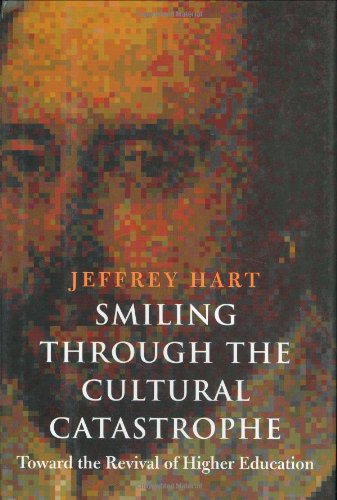
Smiling Through the Cultural Catastrophe
کتاب های مرتبط
- اطلاعات
- نقد و بررسی
- دیدگاه کاربران
نقد و بررسی

December 1, 2001
According to Hart (English, Dartmouth Coll.), the interaction between Athens and Jerusalem, between philosophical-scientific ideas and scriptural-moral thought, has made Western civilization unique. Similarly, the literature of Western civilization from the Iliad and Exodus, to the Divine Comedy and Hamlet, and on to Crime and Punishment and The Great Gatsby has continued this "dialectical tension," the melding of these two seemingly opposite premises. Hart believes that it is imperative that college students continue to study Western civilization and its literature but asserts that more and more institutions of higher learning have pushed such courses aside, favoring the more politically correct concept of multiculturalism. Hart's ideas aren't necessarily new, but his call to arms is justified. Studying the dichotomy between Athens and Jerusalem forces us to examine not only other cultures but also our own prejudices. The tension created between intellect and faith, Hart rightfully suggests, aids freedom and democracy. Primarily for academic and larger public libraries. Terry Christner, Hutchinson P.L., KS
Copyright 2001 Library Journal, LLC Used with permission.

September 15, 2001
Not all academics are riding the wave of multiculturalism. Hart, professor emeritus at Dartmouth, stubbornly holds out for the primacy of Western culture. To justify his intransigence, he invokes the distinctively Western tension between Athens and Jerusalem, between rationality and faith, which has fostered in Western culture an artistic and political dynamism found nowhere else. Wearing his erudition with the ease of a senior scholar, Hart first establishes how the dialectic between the classical and biblical strains of Western culture began, Achilles' wrath against the Trojans answering to Moses' defiance of the Egyptians. He then plumbs the imaginative significance of this dialectic in Western literature, from Augustine's " Confessions "to Fitzgerald's " Great Gatsby." Though daring in its sweep, Hart's synthesis leads readers not toward new and original insights, but rather back to valuable old ones, now catastrophically neglected. In predicting that academe will soon shake off the ideologies regnant since the 1960s, Hart may be indulging in wishful thinking. But if his prediction does prove correct, no book will offer more help in guiding the project of cultural reclamation.(Reprinted with permission of Booklist, copyright 2001, American Library Association.)

























دیدگاه کاربران